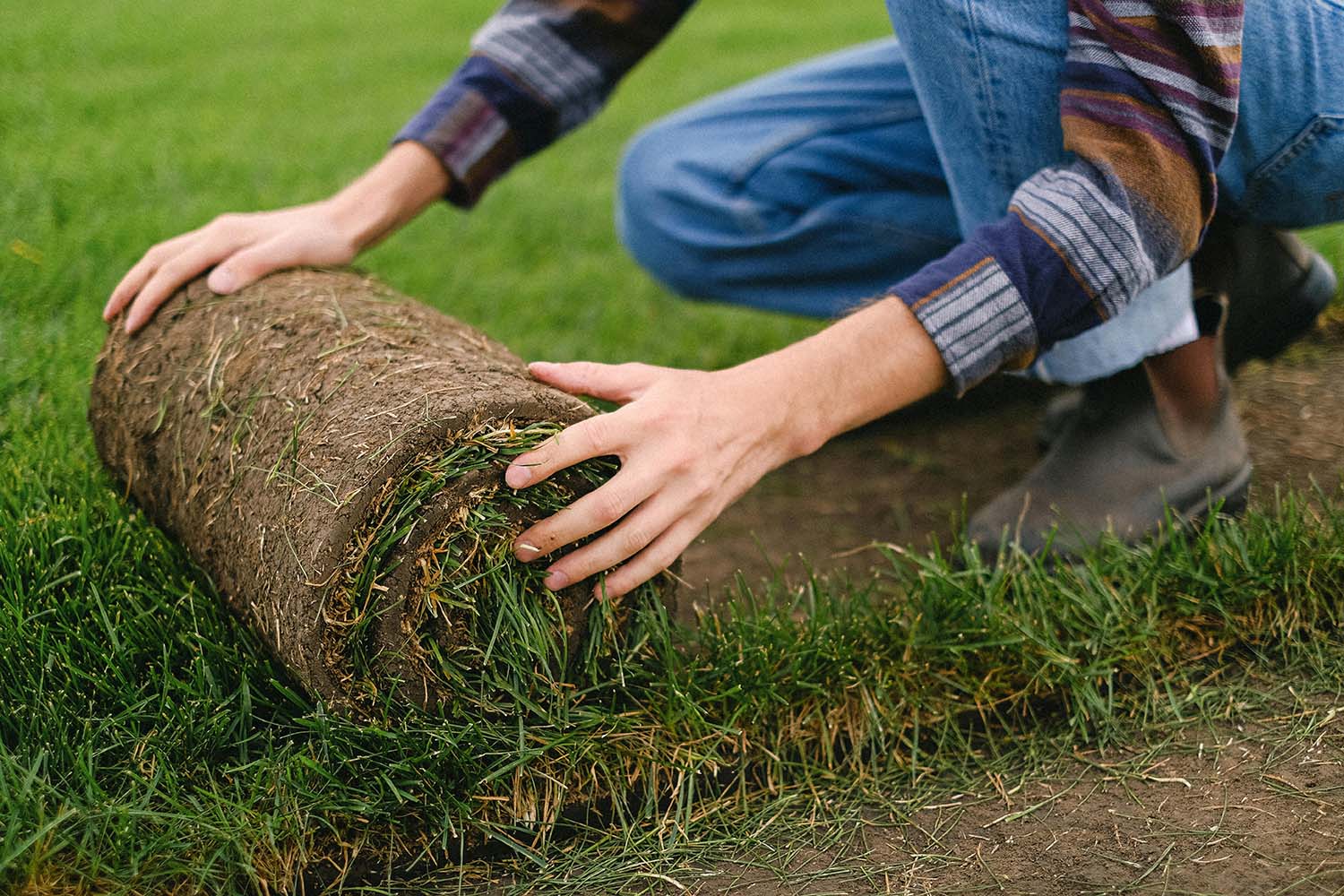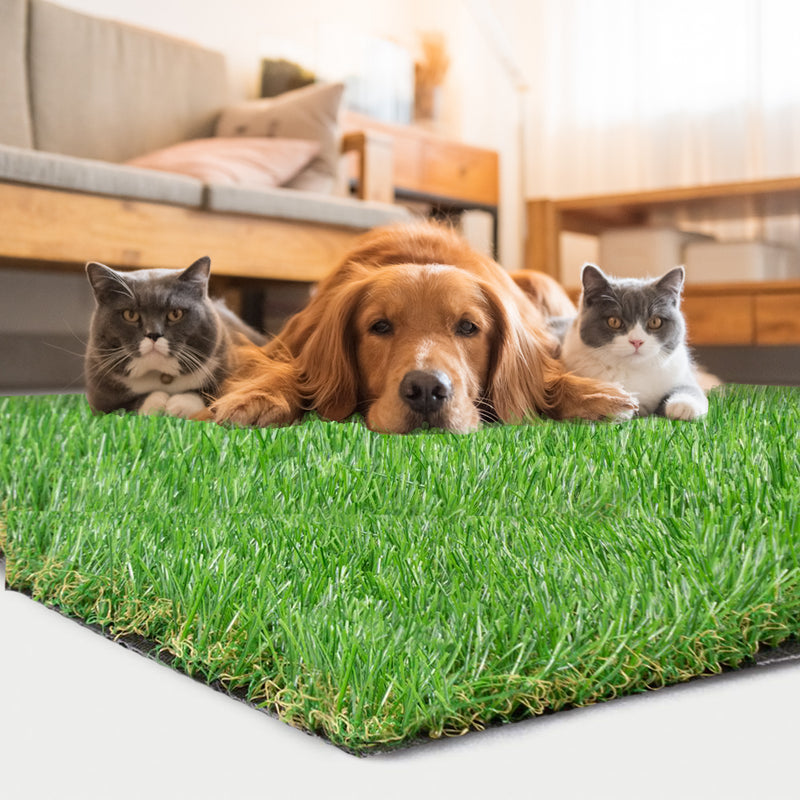Look Into the Environmental Benefits of Opting for Artificial Lawn Solutions
The fostering of synthetic grass options presents a compelling possibility to resolve pressing ecological challenges. By considerably lowering water use and reducing the application of hazardous chemicals, these alternatives not only advertise sustainable landscape design but additionally shield neighborhood ecological communities. Moreover, the lower carbon impact connected with decreased maintenance tasks contributes to a more sustainable technique to land administration. Nonetheless, the implications of these benefits extend beyond simple preservation efforts, questioning regarding their lasting effect on habitat preservation and overall eco-friendly equilibrium. Discovering these dimensions exposes a complex interaction worth taking into consideration.
Water Conservation Advantages
Among one of the most substantial benefits of man-made grass is its capacity to save water. Typical turf yards require considerable watering, particularly in areas susceptible to drought or water restrictions. In comparison, man-made lawn does not need watering, significantly minimizing the total demand for water resources. This function is especially valuable in deserts where water shortage is a pushing concern.
By eliminating the need for routine watering, synthetic grass adds to lasting landscape techniques and assists alleviate the environmental effect of excessive water intake. In addition, the conservation of water prolongs to the reduction of overflow, which can lead to soil disintegration and waterway contamination.
Additionally, the setup of artificial grass permits districts and home owners to allot water sources much more effectively, concentrating on essential usages such as alcohol consumption water and farming. The change in the direction of artificial lawn not only promotes accountable water use yet likewise straightens with more comprehensive ecological goals targeted at preserving natural sources.
As areas significantly prioritize sustainability, the water preservation benefits of synthetic grass offer an engaging instance for its adoption in residential and industrial landscaping jobs.
Lowered Chemical Use
The shift to synthetic grass significantly reduces the reliance on chemical treatments frequently made use of in natural turf upkeep. Traditional turf administration commonly involves the application of chemicals, herbicides, and plant foods to advertise development and control parasites. These chemicals can pose dangers to human wellness, neighborhood wild animals, and the environment, contributing to dirt and water contamination.
In comparison, fabricated lawn gets rid of the demand for these damaging compounds. By lessening the launch of artificial compounds into the ecological community, fabricated lawn advertises healthier dirt and water systems.
Furthermore, the lack of chemical drainage related to synthetic grass setups helps secure regional rivers from contamination, sustaining marine life and keeping biodiversity. Arizona artificial turf. As areas increasingly prioritize sustainable practices, selecting synthetic grass provides a feasible option that aligns with ecological conservation goals. Via this change, building owners can take pleasure in lush green rooms without jeopardizing eco-friendly health and wellness, leading the way for a much more lasting future
Lower Carbon Footprint

Furthermore, the installation of synthetic grass can result in substantial water preservation. Natural yards call for substantial quantities of water for watering, which not just contributes to the carbon footprint connected with water removal and treatment yet also pressures local water resources. In contrast, synthetic grass requires marginal upkeep, requiring no watering, thereby significantly reducing water usage and its connected power costs.
In addition, the longevity of synthetic grass adds to its decreased carbon impact. With a life-span of up to 15 years or even more, the requirement for frequent substitutes is lessened, leading to less waste and lower power intake in manufacturing and disposing of standard turf options. Generally, synthetic grass presents a lasting choice for eco conscious landscaping.
Environment Conservation
Habitat conservation is a crucial consideration in the debate over landscape design options, particularly when comparing fabricated grass to all-natural grass. Natural lawn yards commonly call for comprehensive upkeep, consisting of the use of fertilizers, herbicides, and pesticides, which can detrimentally affect local ecological communities. These chemicals can seep into the soil and rivers, hurting native flora and animals and interrupting neighborhood environments.
Fabricated lawn eliminates the requirement for dangerous chemicals, therefore protecting neighboring wildlife and maintaining the integrity of bordering have a peek at this website environments. The installation of fabricated turf can lead to the conversion of former grass areas right into even more biodiverse landscapes, such as pollinator gardens or native plant areas, which can support local wildlife.
Ultimately, the transition to synthetic grass not just conserves water and decreases maintenance initiatives but likewise promotes a more harmonious relationship in between human tasks and the natural atmosphere, promoting environment conservation at the same time.
Long-Term Sustainability
Long-term sustainability is an important aspect in reviewing the advantages of fabricated lawn over traditional lawn yards. One of one of the most significant benefits of artificial turf is its toughness; it can last up to 15-20 years with minimal upkeep, whereas all-natural lawn requires constant reseeding and replacement. This longevity minimizes the need for continuous sources, such as water, plant foods, and click here to find out more pesticides, which are vital for preserving a healthy and balanced grass yard.
Additionally, synthetic grass adds to a decrease in carbon emissions related to lawn care tools. Conventional lawns often call for gas-powered lawn mowers, trimmers, and blowers, all of which add to air pollution. Artificial turf companies phoenix. On the other hand, artificial lawn removes the demand for such devices, advertising a cleaner environment
Moreover, the production of synthetic lawn progressively utilizes recycled materials, boosting its sustainability account. As producers take on eco-friendly practices, the ecological footprint of fabricated lawn proceeds to lessen.

Conclusion
The fostering of synthetic grass solutions offers considerable ecological advantages, including significant water preservation, reduced reliance on damaging chemicals, and a lower carbon impact. Moreover, man-made turf help in protecting natural environments by minimizing land disturbance and promoting long-term sustainability through making use of resilient materials. Collectively, these factors highlight the potential of synthetic grass to contribute positively to environmental wellness and provide a viable click here now alternative to typical landscaping methods in an increasingly resource-conscious world.
In contrast, artificial grass does not need watering, substantially lowering the total demand for water resources. By decreasing the launch of synthetic compounds into the ecosystem, man-made lawn advertises much healthier soil and water systems.
In addition, the installation of fabricated grass can result in considerable water preservation. In contrast, artificial lawn requires minimal maintenance, calling for no watering, consequently substantially reducing water usage and its connected power prices.
